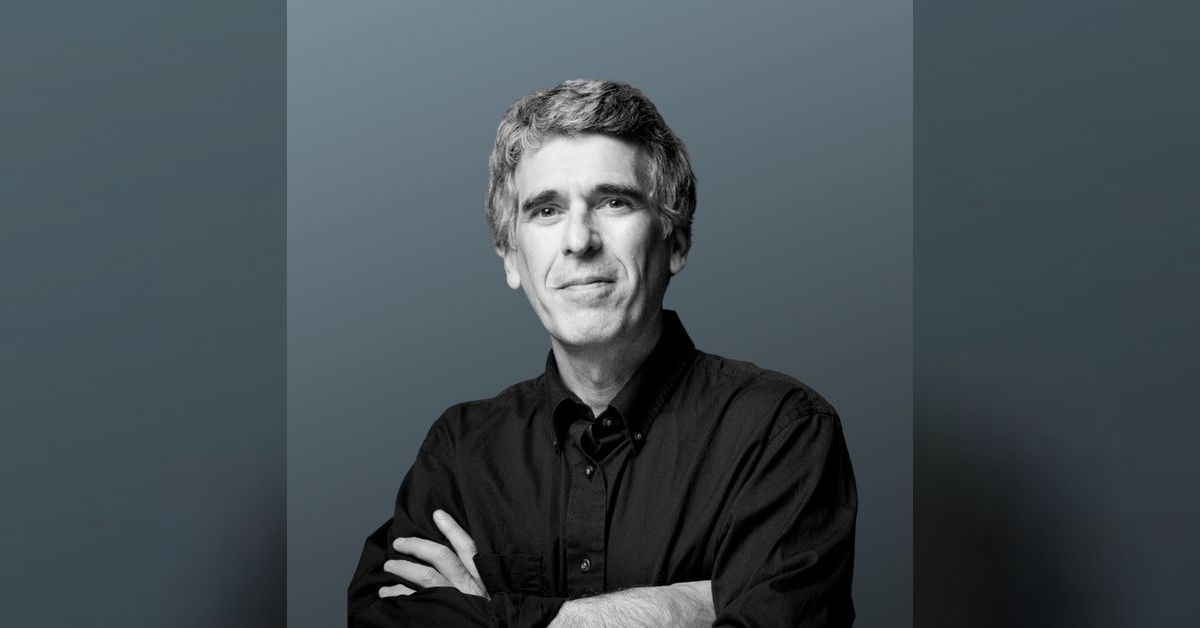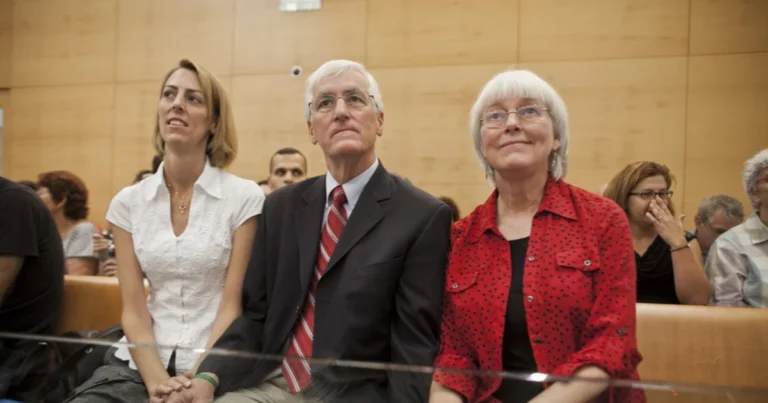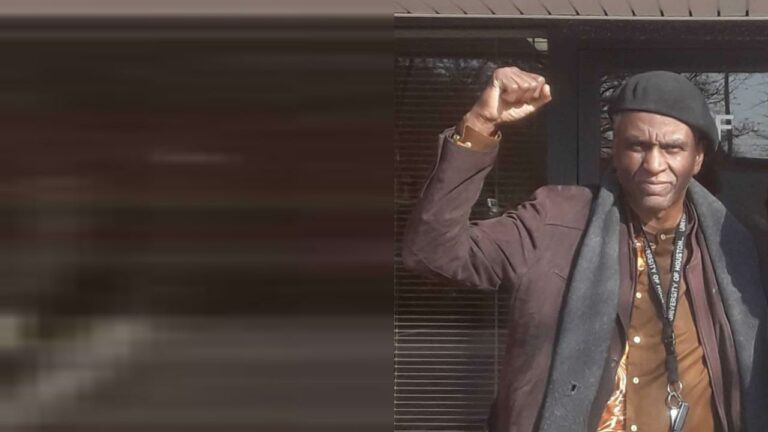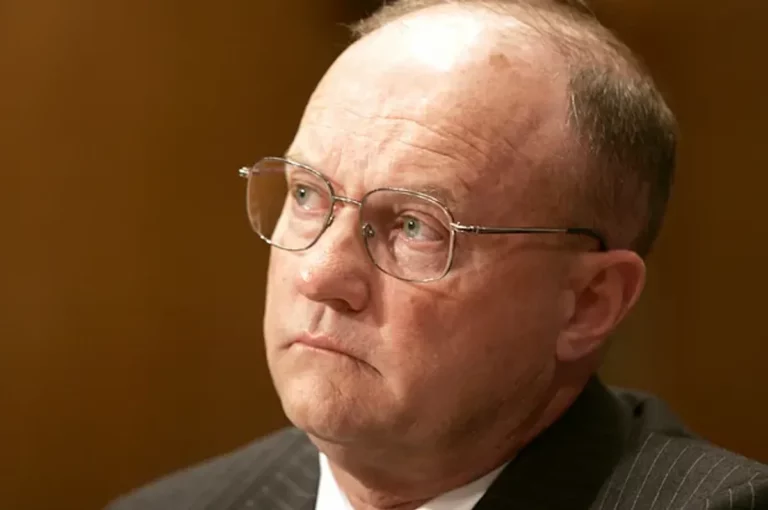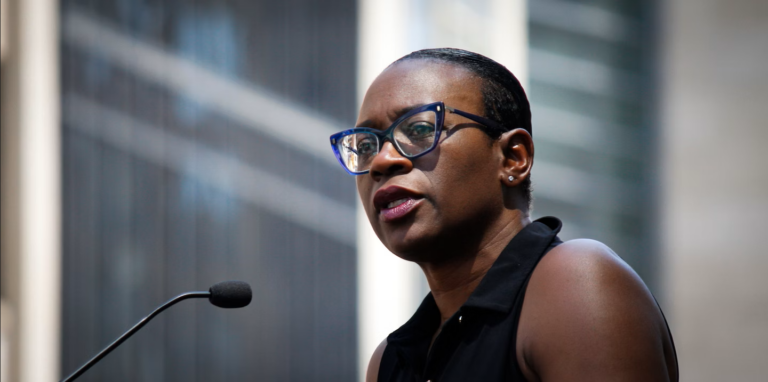Can the Democratic Party Be Reformed? – RAI with Norman Solomon (pt 3/4)
This is an episode of Reality Asserts Itself, produced on June 6, 2017. On Reality Asserts Itself, Norman Solomon of the Bernie Delegates Network tells Paul Jay that corporate Democrats should be vigorously fought in primaries, but this is also a moment like 1930’s Germany where a united front is necessary to defeat Trump and Republicans.
PAUL JAY: Welcome to the Real News Network and welcome to Reality Asserts Itself. I’m Paul Jay. We’re continuing our discussion with Normal Solomon and we kind of did this out of order on Reality Asserts Itself. We usually or often at least start with a sort of biographical section and then we start moving into more contemporary issues. Well there were so many kind of burning things that we decided with Norman to start with this fight within the Democratic Party and then deal with the Comey affair and so on, but now we’re going to do the more biographical section and you’ll see it kind of connects with the whole fight within the Democratic Party anyway. So now joining us again in the studio is Norman Solomon. Norman is the Executive Director of the Institute for Public Accuracy and co-founder of the national group rootsaction.org. Amongst his various books, it includes “Made Love, Got War: Close Encounters with America’s Warfare State.” Thanks for joining us again.
NORMAN SOLOMON: Glad to be here.
PAUL JAY: The sort of theme of this interview, although it’s been about various things is that in the Democratic Party there is a fight between various stratum and classes. I mean I’ve always described the Democratic Party and Republican too, although somewhat to a lesser extent as kind of a united front if you will of various classes. The American billionaire class oligarchy, Wall Street, however you want to call them. You have a section of the working class, mostly urban. You have a section of the poor. The workers mostly represented by trade unions. A lot of that’s shifting now and the Trump election, a traditional section of that working class vote went to Trump. Not all of it but enough to elect him. But this issue of the Democratic Party, you hear a lot now of people saying, well we want to get it back to be the people’s party. We want it to go back to the party of the workers and such like that. There’s a lot of this idea that the past of the Democratic Party was kind of glorious and for the people and it’s only recently that it’s not been, like since Clinton and such. But both of us are of this generation that our attitude toward the Democratic Party was really all about the Vietnam War. Talk about that for you and as I know from your biography at the age of 14, you even get an FBI file which kind of connects to this story.
NORMAN SOLOMON: Yeah. As it turned out because I picketed for desegregation of an apartment building in Silver Spring Maryland in early 1966, FBI file was opened up that I eventually got through the Freedom of Information Act. I think for me the most formative, relevant to your comments was the Vietnam War and just seeing how the Democratic Party establishment and the mass media would not only go along with but actively cheer lead just this massive slaughter that made no sense other than greed and geopolitical power. When I think back then, the way in which Martin Luther King Jr. Has been expropriated has been so powerful because here’s somebody who as I like to remind myself and others denounced what he called the madness of militarism and had so much incentive to keep his mouth shut. After all the Democratic Party by 1965 and the signing of the Voting Rights Act was a civil rights party, dragged kicking and screaming by activists in the South and elsewhere. Then came the Vietnam War escalation and King faced a choice that of course, we’re in a very different era and yet this is sort of a paradigm. A choice that so many leaders face and fail, that he was willing to succeed at a matter of conscious and political leadership, denouncing the Vietnam War. So I think with all the changes, and here we are five decades later, there’s sort of an archetype there of political dynamics and the disincentives to be clear about principles that King articulated.
PAUL JAY: Then what happens with you politically? Vietnam War, you have this disillusionment about the Democratic Party but as your political activism develops, you spend quite a bit of time fighting inside the Democratic Party.
NORMAN SOLOMON: On and off, yeah. I became very disenchanted with the involvement in electoral politics and during the seventies, I was writing. I was organizing non-violent civil disobedience. I spent two years basically volunteering in Portland, Oregon, blockading a nuclear power plant. It was the first time of such actions for an operating nuclear facility. So we had mass arrests and I learned a lot. Doing that I was sort of Gandhian approach and I thought that electoral politics was just dumb for the most part. I supported Barry Commoner in 1980 but I really didn’t believe that Reagan would win. I see sort of an archetype here. In many ways our society is still reeling from the tremendous damage of the eight years of Reagan. So when people in the year 2000 said, well you know, Gore, Bush, what’s the difference or when they said that in terms of Trump, especially in domestic politics, between Hillary Clinton and Trump in the general election, it just flies in the face of history. When the extreme wings of the corporate pair of parties get power, a lot of people suffer. People of color, poor people, the feminization of poverty is played out more viciously. So for me it was eyes wide open during the Reagan era and I began to gradually feel that we could not seal off the electoral arena. Now that should seem like obvious and I think it should be made obvious. We need the electoral area as part of the battleground if you will, the non-violent battleground for humane values and progressive politics and that gradually drew me back to the point where I was just last year a Bernie Sanders delegate to the national convention.
PAUL JAY: What do you say to people who say that if all the people who spent so much time fighting within the Democratic Party, even the Sanders campaign, spent the same effort building a third party, excuse me, that a third party would be in a far better position, especially given what’s happening now?
NORMAN SOLOMON: Yeah I just got back from Germany where there’s a parliamentary system and you got Die Linke, the left party, 10% of the parliament. You’ve got the Greens, 10% of the parliament. We don’t have that here. I think it’s just a reality of are people serious gaining some state power for the left or not. So we can fantasize all we want. There’s reasons why Barry Commoner was shellacked. There’s reasons why at the heyday of the Green Party nationally Ralph got 2.7% and now they’re getting 1%. If you want to talk about a waste of energy, it’s the national Green Party presidential campaigns that I think are the epitome of that in the electoral arena. We’ve got to make this fight. We need to win so that we can win governorships and there are differences between right wing Republican governors like Scott Walker and liberal sometimes mushy Democrats like Jerry Brown of California. We can’t afford as progressives to say, oh what the hell. They both don’t meet our standards and so we’ll let the poor people in these states suffer or not. We’re indifferent. That’s not progressive politics.
PAUL JAY: Let me just push back a bit and give their argument. I say their because it’s not my argument but there’s something to it. That there’s a lot of energy and organizing and talent and experience that goes into this fighting this out in the Democratic Party. If that all went to a Green Party or some kind of other independent party, then it might have more of a role, more significant. Right now so many people stay within that fold and the argument goes, helps create illusions that there is a possibility of some real reform of the Democratic Party.
NORMAN SOLOMON: Well there’s a possibility that if Bernie Sanders ran for president he would help galvanize some huge movement. If Bernie had run on the Green Party ticket, he might have gotten two or three or five percent if he started that way. But I think he had the wisdom and may people foresaw that, that we take the fight to those who have dominance of one of the two major parties. I think there’s a counterpoint, if you leave aside their horrendous politics, to the Tea Party and the way the right wing, going back to Pat Robertson in the ’80s, saw that opportunity with the Republican Party. They grabbed it and they used it. We have the possibility, not to foreclose but on the contrary to have a synergy between all the different kinds of grassroots organizing and protests and infrastructure of progressive movement groups around the country. We can’t allow the corporate democrats to simply have a free fire zone and a field day inside the Democratic Party. We shouldn’t put all our eggs in that basket but we shouldn’t just let them have the run of the show.
PAUL JAY: Now you were a delegate, a Sanders delegate at the Democratic Party convention in Philadelphia. You were part of the California group. There was a point where you were even thinking of walking out. As soon as the Clinton camp closed out even Nina Turner from nominating Bernie Sanders seemed petty, almost a kind of revenge against her for how dare you. We brought you up within the Democratic Party in Ohio and how dare you be a Sanders type. You were supposed to stay loyal Clinton. I mean the Clinton, the Clinton machine and the corporate Democrat machine, they’re vicious. They play hardball. They are the oligarchy. How do you see this playing itself out over 2018 and 2020? If Sanders runs again, it sounds like he’s going to or someone else, but right now it sounds like Sanders is going to run. He’s the only public face of the Democratic Party now other than Schumer that has any media profile. He stands a very good chance of doing very well but what happens? I can’t imagine the Democratic Party establishment allowing him to win unless somehow he convinces them, you know he doesn’t actually believe the stuff he’s saying but I think there’s every reason to think he does.
NORMAN SOLOMON: Well two years ago it was unthinkable that someone of Bernie’s politics could gain as many delegates as he did. In 1971 it was unthinkable that George McGovern would become the nominee of the Democratic Party for president and when you go back and you look at McGovern’s speeches as a candidate for president in that year, he had a pretty strong critique of US militarism, of the sort that we’re really not getting from anybody in the US Senate today.
PAUL JAY: Including Sanders.
NORMAN SOLOMON: Yeah. Absolutely including Sanders. In the documentary film based on my book “War Made Easy,” we put in a section of Senator Wayne Morris, just an articulate vehement speaker on behalf of international law if you can imagine. Now international law and adherence to it by the US government seems like a fantastic goal, no feet on the ground, pie in the sky idea. He articulated it to denounce the Vietnam War. I think when you look at Wayne Morris who was after all elected ultimately as a Democrat from the state of Oregon in the US Senate, that is possible. I mean when you hear him, you also contrast him to every single member of the Senate and it’s night and day. We don’t have a single Senator with the clarity that Morris had.
PAUL JAY: So let’s game theory, play this out. Let’s say 2018 there’s a few breakthroughs. Some right wing Democrats get primaried. Honestly it’s not looking like there’s going to be a lot of success primarying right wing Democrats. Maybe that will change as we get closer to 2018. I mean I think there’s a lot of pressure right now. I mean elect any Democrat because they want to take back Congress and Trump and so. What I’ve been calling a temporary truce in a civil war within the Democratic Party is really going to break out as we head towards 2020. Do you think that people need to planning for, by people I mean progressive people, people who support the Sanders type of movement, that if there’s a block by whether it’s rigging the vote or shenanigans at the convention or something, that there will have to be a point where people walk out of that convention. In theory Sanders should lead it and in theory that does give rise to another party. I mean can you imagine these corporate Democrats allowing this kind of win?
NORMAN SOLOMON: Well I mean again a couple of years ago we couldn’t imagine that the corporate Democrats would allow someone like Bernie to amass 45% of the votes or again the McGovern. So I go back to that. But I think the phases of the next few years that you’ve mapped out are very significant because there is historically as last did not quite work in the 30s in Germany, there’s a necessity sometimes at that historical moment for a united front. I think getting rid of the Republican majority of the House in 2018 is a laudable goal. At the same time that you got to fight in the primaries to get the best people you can who are populists, progressive populists who actually not only are better leaders but also have a better chance of winning by not just being corporate flacks as Hillary Clinton pointed out in her actions doesn’t necessarily work to put it mildly. But after that, we’re going to be back in a very similar argument I think to what we had in 2015.
PAUL JAY: Just let me stop you. When you say united front, you mean …
NORMAN SOLOMON: Defeat Republicans.
PAUL JAY: There will be a point where defeating Republicans is the issue. So if you can’t beat them, right win Dems in the primaries, there is going to have to be a think of just getting Democrats elected to defeat Republicans.
NORMAN SOLOMON: In 2018, ultimately for the general election it’s going to be, do you want Paul Ryan to be Speaker again? I think that is going to be a real think. I think it’s valid to say we want to get rid of Republican control of the House because it’s so important. But then you get past there, and you get in 2019 and the reality is that we had a twisted argument by the mass media in 2015 and into 2016. It was the conventional wisdom that was totally wrong which was an establishment corporate hawk candidate like Hillary Clinton was the best chance to defeat the Republican for president. It turned out to be a backwards argument, totally wrong and we’re going to see it again. As I think we could plausibly say, Bernie would have done much better against Trump than Hillary did. I think we’re going to be looking at that same issue again. Can you defeat phony right wing populists with corporate Democrats? I think Hillary Clinton showed you can’t and I think Bernie could.
PAUL JAY: What if the establishment candidate and this is pure speculation, is Elizabeth Warren?
NORMAN SOLOMON: Well I think as broad brush, she’s very good in domestic policy. Her foreign policy seems to be totally conventional and therefore dangerous and people have to make that choice. I’ve heard some discussion about a Warren/Sanders or Sanders/Warren ticket. We don’t know.
PAUL JAY: Go back to my question. When I say I can’t see them allowing a Sanders victory if there’s the machinery to prevent it, I know they never thought Sanders could become what he did. I know they did try to stop and there’s certainly some accusations of a certain amount of rigging that took place during the primary. I don’t think anybody’s made the argument that’s entirely why he lost although there may be some, one or two of the primaries that maybe there was some voter suppression that was decisive. It’s possible. They’re capable of a lot of nefarious stuff, these corporate Democrats. We know from Wikileaks the kind of stuff that went on at the DNC and that’s probably mild compared to what could be done. Is there a point where people need to be planning and thinking now if Sanders et al have to walk out because there’s even some technical issues. He can’t just walk out and become a candidate for president because he won’t have a party that’s registered in 50 states.
NORMAN SOLOMON: Yeah, a couple points. First two-thirds of the super delegates who were in place in 2016 are eliminated in 2020 because of all the opposition of the rigging of the system through super delegates. That pressure forced the establishment if you will to say okay we’ll get rid of two-thirds and so it will be 200 something instead of 700 something.
PAUL JAY: Yeah because the other ones now have to vote the way their states vote.
NORMAN SOLOMON: It’s going to change dramatically.
PAUL JAY: If Sanders or whoever wins a state, the super delegates have to vote that way.
NORMAN SOLOMON: It’s a real improvement. It’s two-thirds of the way to what we need. That would shift the terrain a bit against the establishment candidate in 2020 compared to 2016. But directly to your key question, I think if Bernie is a barometer, Bernie Sanders beginning in 1984 when he was an independent politician in Vermont, fight like hell in the primaries has been his precept, but in the general election he campaigned for Mondale against Reagan and ever since he has had that I think wise understanding that you fight in the primary for the best candidate but you don’t pretend that it doesn’t matter if the Republican is elected in the general. So I certainly don’t in any way foresee Bernie leading such an exit. I think that the way to build a third party is from the grassroots up, from the foundation. Metaphorically, every four years, Jill Stein wants to put on the roof and there’s no foundation, let alone walls. If she wants to build the structure. I love to give the example as you mentioned in an earlier discussion we had of the Richmond Progressive Alliance in Richmond, California because it’s sort of the opposite of starting with a presidential campaign and wanting to get one or two percent as a practical matter. They’re saying you build power from the grassroots. I believe it was Jon Stewart that said that while we were laughing at the right wingers and then the Pat Robertsons and the Tea Parties and we were making jokes about them, they were winning school board elections and county commission elections and then state legislature elections and they’re no laughing matter now. They’re tragedies unfolding, so I think we need to take a page there, not of course in content but in terms of a belief in grassroots organizing. I think this is an irony that in many ways the liberal Democratic Party leaders are much less committed to any sort of belief in grassroots democracy than the right wing. That’s horrendous. They believe that you do it out of the beltway and the big money folks and we as progressives need to prove that you make lasting change with grassroots organizing.
PAUL JAY: Okay in the next segment and final segment of this series of interviews we’re going to talk about Norman’s activity and work with whistle blowers. He’s very involved and we’ll find out more about that in the next episode of Realty Asserts Itself on the Real News Network.
“Norman Solomon is an American journalist, media critic, activist, and former U.S. congressional candidate. Solomon is a longtime associate of the media watch group Fairness & Accuracy In Reporting.”
